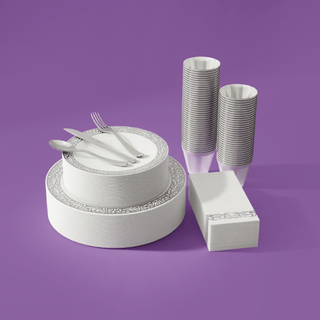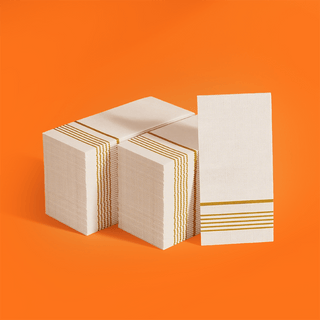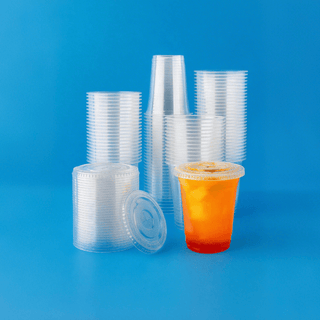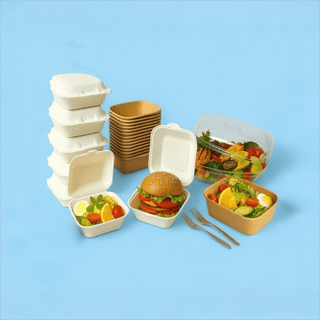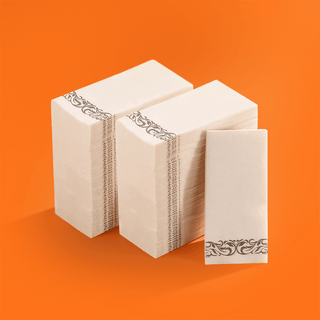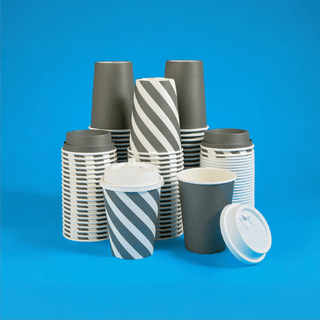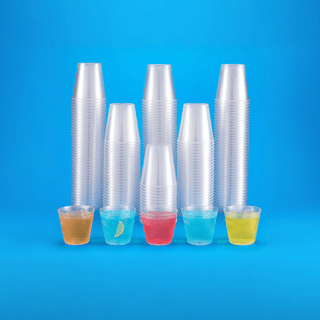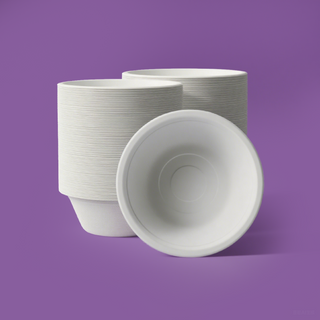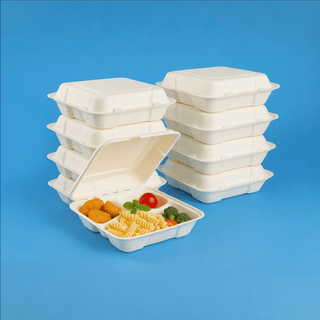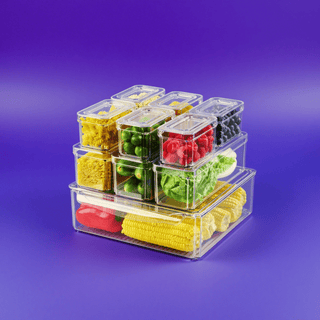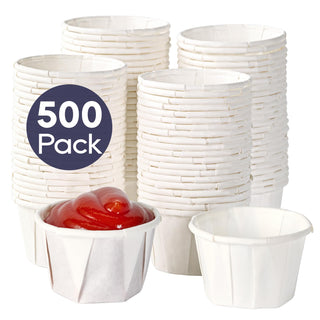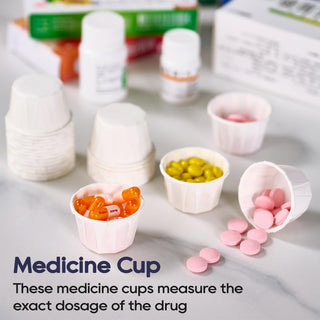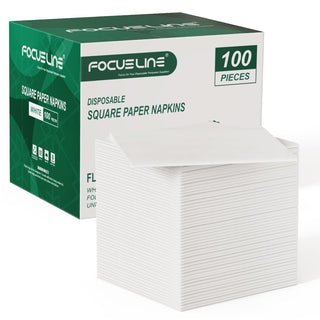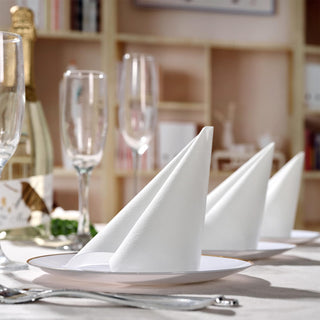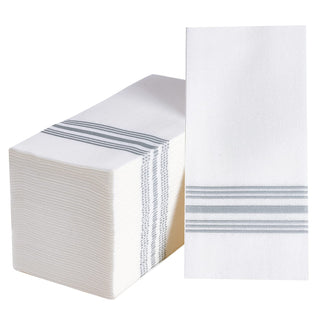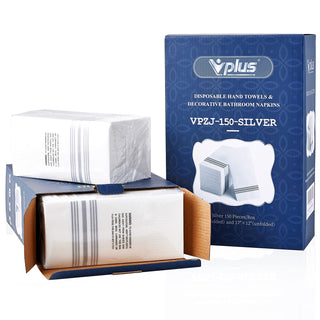
A Guide to Smart Disposable Solutions
Smart disposable solutions give you the convenience of single-use items while reducing harm to the environment. You can choose better disposable products, from party cups to Disposable Paper Plates, that have a smaller impact.
The U.S. generates over 14.5 million tons of single-use plastic packaging waste each year.
Your choices are powerful. You are part of a growing movement, as 62% of consumers now seek out sustainable products. This guide equips you with knowledge about sustainable materials and proper disposal. You can confidently select the right disposable items for your needs.
Key Takeaways
Smart disposable products help the environment. They are made from good materials and break down easily.
Look for products with clear labels like 'compostable' and certifications like BPI. This helps you avoid fake eco-friendly claims.
You can choose better disposable items for your kitchen, parties, and business. Examples include bamboo paper towels and compostable plates.
Proper disposal is important. Compostable items must go to a composting facility to break down correctly.
Your choices make a difference. Even small changes to smart disposable products help the planet.
DEFINING SMART DISPOSABLE PRODUCTS
Making sustainable choices with disposable products means looking at the bigger picture. A truly "smart" single-use item is judged on its entire journey, from how it's made to how you get rid of it. This helps you avoid pollution and make a positive impact.
KEY CRITERIA FOR SMART CHOICES
You can judge a product’s quality by looking at its full lifecycle. This includes three main areas:
Sustainable Sourcing: The raw materials should come from responsible sources.
Safe Materials: The product must be free from harmful chemicals. Many traditional plastics contain endocrine disruptors like Phthalates and BPA, which can affect your hormones. Choosing certified safe disposable products protects your health.
Responsible End-of-Life: The product should have a clear path for disposal, like being compostable or recyclable. This turns potential waste into a useful resource.
A GUIDE TO SUSTAINABLE MATERIALS
Understanding sustainable materials helps you make better choices. Many smart single-use items use innovative, plant-based materials. Here are a few common ones:
Bagasse: This is a natural byproduct of sugarcane processing. It creates heavy-duty and eco-friendly disposable tableware, like plates and bowls. Producing bagasse paper uses significantly less water and energy than traditional wood pulp paper.
PLA (Polylactic Acid): This is a plant-based plastic, often made from cornstarch. It is great for cold cups and containers. However, PLA is sensitive to heat and can deform at temperatures above 140°F (60°C), so you should not use it for hot foods.
Bamboo: This fast-growing grass is a highly renewable resource. Bamboo forests help prevent soil erosion and absorb large amounts of CO2 from the atmosphere. Its rapid growth makes it an excellent material for sustainable alternatives.
BIODEGRADABLE VS. COMPOSTABLE LABELS
You will often see the terms "biodegradable" and "compostable" on packaging. While they sound similar, they mean very different things.
Biodegradable: This term means a product can break down into natural elements over time. However, the term is not regulated. Many biodegradable materials only break down under specific conditions found in industrial facilities, not in a typical landfill.
Compostable: This is a certified standard. For a product to be labeled compostable, it must break down into nutrient-rich soil within a specific timeframe in a commercial composting facility. Look for certifications like BPI (Biodegradable Products Institute) to ensure your compostable tableware meets these strict requirements for biodegradability.
CHOOSING SMART SUSTAINABLE ALTERNATIVES
Making better choices about disposable products starts in your daily life. You can easily swap conventional single-use items for sustainable alternatives. These small changes add up to a significant positive impact on the environment. This section will guide you through practical swaps for your home, parties, and business.
SMART SWAPS FOR YOUR KITCHEN
Your kitchen is a great place to start reducing waste. You can replace many common single-use products with smarter options. Consider switching from traditional paper towels to ones made from bamboo. Bamboo fibers have a unique hollow structure. This makes them very absorbent and strong, even when wet.
You can see the difference clearly when comparing them.
Feature |
Bamboo Paper Products |
Wood-Pulp Paper Products |
|---|---|---|
Strength |
Strong and durable, even when wet |
Can be less durable when wet |
Absorbency |
Very absorbent and can be reused |
Good absorbency but for single-use |
Choosing bamboo helps you clean up spills effectively without the product tearing apart. It is a simple swap that improves performance and supports a healthier planet.
HOSTING WITH COMPOSTABLE TABLEWARE
When you host a party or BBQ, disposable tableware offers incredible convenience. You can enjoy that same ease without the guilt by choosing compostable tableware. These products provide an elegant and responsible way to serve your guests.
For example, you can host like a pro with Jolly Chef. The brand offers excellent smart disposable solutions. Their White Round Compostable Plates are made from 100% sugarcane pulp (bagasse). This makes them a heavy-duty and durable option for any meal. These plates are fully compostable, turning into soil after use instead of sitting in a landfill. Their simple, elegant design also elevates your event's look.
Modern compostable tableware offers versatility and style. You can find a wide range of sophisticated patterns to match any event theme. These designs add an elegant touch to gatherings, enhancing the overall ambiance. They effortlessly align with the theme of your gathering, from a laid-back barbecue to a stately dinner.
Using high-quality compostable tableware from a trusted brand like Jolly Chef ensures your event is both beautiful and eco-conscious. You get the convenience of disposable tableware with the peace of mind that you made a better choice.
ECO-CONSCIOUS BUSINESS CHOICES
Businesses have a great opportunity to lead the way in sustainability. Switching to eco-friendly disposable products can reduce waste and improve your brand's image. Many food service businesses find that customers appreciate these efforts. For instance, one California coffee shop switched to compostable single-use items and received only positive feedback, saving nearly $7,000 annually.
For companies, these choices go beyond customer perception. Using certified compostable products helps you meet important corporate sustainability goals.
Compostable packaging reduces landfill waste and supports your operational waste reduction targets.
Many large companies now include compostability in their ESG (Environmental, Social, and Governance) reporting.
Choosing the right supplier ensures your sustainability efforts are legitimate and effective for ESG goals.
Brands like Jolly Chef support these goals by offering bulk options for their disposable tableware. This makes it cost-effective for caterers, event planners, and offices to adopt sustainable practices. You can align your business with environmental responsibility while managing your budget effectively.
UNDERSTANDING THE ENVIRONMENTAL IMPACT
Understanding a product's full journey helps you see its true environmental impact. Your choices can either contribute to pollution and waste or support a healthier planet. This knowledge empowers you to look beyond the label and make genuinely smart decisions about the single-use items you buy.
A PRODUCT'S LIFECYCLE ANALYSIS
Let's trace the journey of a compostable plate. It begins as sugarcane, a renewable plant. After the sugar is extracted, the leftover pulp (bagasse) is molded into a plate. This process has a much smaller carbon footprint than making plastic. After you use the plate, it goes to a commercial composting facility, where it breaks down into soil. This completes a circular, waste-free lifecycle.
Now, consider a traditional plastic plate. It starts as fossil fuel, a non-renewable resource. Its production creates significant pollution. After a single use, it ends up in a landfill, where it can take hundreds of years to break down, contributing to long-term plastic waste. The difference in impact is clear.
Material |
CO2 per Plate |
|---|---|
Polystyrene |
6 KG |
Bagasse |
164 g |
HOW TO AVOID 'GREENWASHING'
Some companies use misleading marketing to make their products seem more eco-friendly than they are. This is called "greenwashing." You can learn to spot it. Be cautious of vague terms on packaging.
Vague Words: Look out for words like "eco-friendly," "natural," or "green" without any proof. These terms are often unregulated.
Misleading Imagery: Do not be fooled by pictures of leaves, green colors, or earthy textures. These visuals do not guarantee a product is sustainable.
Lack of Certification: A truly compostable or organic product will have an official certification logo, like from the BPI (Biodegradable Products Institute).
The Federal Trade Commission (FTC) has fined major companies like Kohl's and Walmart for making deceptive "eco-friendly" claims. This shows why you need to be a careful shopper to avoid contributing to plastic pollution.
MAXIMIZING POSITIVE IMPACT
Choosing a smart disposable product is the first step. Proper disposal is the next. A compostable plate only helps the environment if it actually gets composted. Tossing it in the trash sends it to a landfill, where it cannot break down correctly.
Unfortunately, not everyone has access to commercial composting.
If you have access to a composting program, you can maximize your positive impact.
Check Local Rules: First, confirm your local facility accepts compostable single-use packaging.
Use Correct Bins: Separate your compostable items from recycling and landfill waste to prevent contamination.
Avoid Mixing: Do not mix non-compostable items with your compostable disposables. This ensures the entire batch can be processed correctly, reducing plastic waste.
You can protect the environment by making informed choices. Remember to evaluate materials, understand labels, and commit to proper disposal for your single-use items. Your positive impact comes from small, consistent actions, not perfection. Choosing certified compostable tableware from trusted brands like Jolly Chef is an easy first step.
Start Small: On your next shopping trip, try swapping just one of your usual single-use disposable products for a smarter alternative. This simple change helps reduce waste and supports a healthier planet. You can find great disposable tableware options to begin your journey.
FAQ
### What are bagasse plates made from?
Bagasse plates, like the ones from Jolly Chef, come from sugarcane pulp. This is the fibrous material left over after juice is extracted from sugarcane stalks. You get a strong, durable, and eco-friendly product from a renewable resource.
### Are compostable plates safe for hot food?
Yes, high-quality compostable plates are designed for hot food. Products made from bagasse are heavy-duty and heat-resistant. You can confidently serve hot meals on them without worrying about leaks or the plate losing its shape.
### What does the BPI Certified logo mean?
The BPI (Biodegradable Products Institute) logo guarantees a product is truly compostable. It means the item has been tested and proven to break down safely in a commercial composting facility. You can trust this certification when making smart choices.
### Can I put compostable plates in my backyard compost?
You should check the product's packaging first. Most certified compostable tableware needs the high heat of a commercial facility to break down properly. Your home compost pile may not get hot enough for them to decompose effectively.

